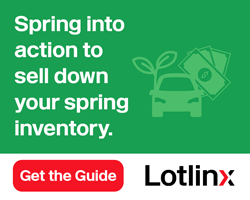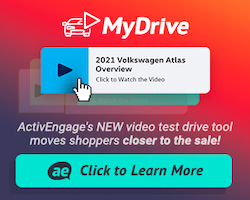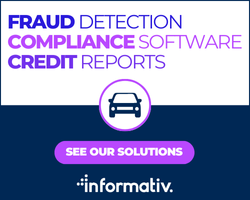What the following reasons provide are valuable talking points to discuss opportunities with a CRM solution or problem you may be experiencing in your store. Admittedly the title to this article is very tongue in cheek, especially since I serve dealerships in my position for a CRM provider.
Dealership CRM Utilization will not be enforced
It happens to the best of us. With grand intentions we sign up for the latest and greatest CRM solution with all the bells and whistles then… we let our salespeople get away with not properly using it. Maybe it is just too difficult for the salespeople? In that case you may have made the wrong choice as to which CRM provider to partner with. “It doesn’t work all the time” they say. No software is perfect and even Microsoft, the largest software firm in the world, does not create perfect software (have you ever had issues with Windows, Word or Internet Explorer?).
We need to start recognizing the complaints of salespeople and managers for what they are, complaints. Why would they want to use a system that tracks all of their emails, calls and daily activity anyhow?
Starting on day 1 your staff will be on a witch hunt, but you can overcome it by consistently enforcing it’s proper usage and by gaining buy in. A mentor once told me “Management comes down to making people do what they don’t want to do, to be successful.” I recently reviewed a Chevy store where month to date only 10% of appointments were confirmed resulting in 83% not showing up. Also, phone calls where customers did not answer, the rep did not leave a voicemail 21% of the time.
Dealership CRM Data will not be maintained
If your CRM does not integrate with your dealership DMS you have a huge problem. This means someone in the store would have to be responsible for marking every customer sold and including the details from each sale with accuracy every time, which is probably not going to happen.
If your CRM does integrate with your DMS there will still be split deals, contact info not matching and other issues that will need to be monitored then updated to ensure the accuracy of your reports in the CRM. If your reports are not accurate you cannot properly measure and fix which should be the single most important focus for any dealership using a CRM solution. Recently I reviewed a large GM store that had 176 un-matched sales for the month… their reports are guaranteed to be far from accurate. This is something that could be corrected in less than 30 minutes.
Dealership CRM Reports will not be monitored
The data will be there but your managers will not use it (hopefully this will not be the case). All to often we get into the habit of waiting until the beginning or end of the month to review what has taken place in our stores. This type of reactive approach will only lead to delayed success and stifled growth. Proactive monitoring of the dashboards and desklog in your CRM will allow you to participate in the success of your salespeople throughout each and every day. This will also minimize your losses when salespeople take the easy route, which we all know they most often do.
Ask yourself, how many opportunities did they mark bad or lost today? Now you wouldn’t want to eliminate the study session that takes place with those critical month end reports, just adjust your mindset. Month end reporting will allow you to make long term business decisions about where to spend your advertising dollars and how your sales process should evolve. I just reviewed a Honda store where 774 tasks were delayed month to date. This same store had 100 customers marked lost out of 199 total internet leads for the month.
Dealership Management will not buy-in
Be sure to embrace their concerns and address them directly alongside the other key players in your business. Many dealerships have the bad habit of not requiring managers to maintain an intimate relationship with the CRM on a minute-by-minute basis. This is a critical flaw in the overall utilization of CRM. Not to say managers need to be tethered to their computers, but with the innovative tools now on the market we can keep an eye on the store from any device (be it a smart phone or tablet).
When we demand managers embrace the tools at their fingertips they will quickly become aware of how salespeople are gaming the system and letting things fall through the cracks. Remember the quote from earlier? “Management comes down to making people do what they don’t want to do, to be successful.” The good news is that most of the time when managers are involved in CRM salespeople quickly fall in line.
Another key area of improvement is to ensure the top salesperson is the CRM champion of the store. We all aspire to become the alpha dog and lower performing reps often quickly take notice. It is also imperative to define your sales process and get input from your team members to understand which follow up calls, emails, letters and etc. have the highest value. This way they can focus on the highest impact opportunities without becoming bogged down with irrelevant tasks or the ones they do not buy into. Today there is a Chrysler dealership who’s reports show 1,678 calls their salespeople did not make on the day they were scheduled (month to date).
Ongoing Dealership CRM training will not occur
We can all agree that even the best can get better. With CRM solutions there is always a new best practice, technique, feature or idea to implement. Once there is a system in the dealership by which to test new opportunities and measure them we must at least try. Several CRM providers offer tune-up and online training that will ensure your staff is always performing at a top level. When you hear from your team “I’m too busy” or “I already know the system” statements like this are red flags signaling complacency.
Success breeds complacency and what lined your pockets last month may not be what brings home the bacon this month. Feast or famine has been the manta of the car business since I can remember but we are resilient individuals in the car business and should not settle for the status quo.
Invite your CRM vendor to audit your sales process. How does it compare to top performing stores in other markets? Examine the CRM utilization shortcomings of salespeople and managers then project how improvement in those areas will impact sales and service. Remember the Chevy store that only confirmed 10% of appointments and 83% did not show up? Their closing ratio month to date is currently 29%. If they would have confirmed close to 80% and half of those customers showed up, they would have sold 17 more cars. Their average total gross right now is $2,300 per vehicle. A little training can go a long way, especially when we are talking about close to $40,000 gross!
We will fail to specifically target our marketing efforts
When it comes to marketing, data is king. The more information you have the better you can leverage that data to discover your target audience. Contrary to popular practice, it is not a good idea to email every unsold customer with an email address every month. When stores fall into this habit they teach customers to disregard their emails undermine their marketing efforts. The trick is to email the right customer at the right time. Recently I noticed a Toyota store email 6,000 customers an offer only to sell 3 units for a whopping $1,100 in gross. The same week, across the country, another Toyota store selected 600 customers and emailed out a similar offer. They went on to sell 7 vehicles within 14 days and made just over $12,000 in gross. The second store knew something the first store did not and they emailed the offer only to unsold customers within the past 60 days who were looking for a vehicle with a current incentive.
In conclusion, CRM solutions allow you to follow up appropriately with customers, maximize profitability, increase return on investment and continually increase efficiency. But you will not be able to sell and service more cars than ever before unless you address the 6 reasons in this article.
What CRM best practice ideas do you know of? Please share in the comments.









